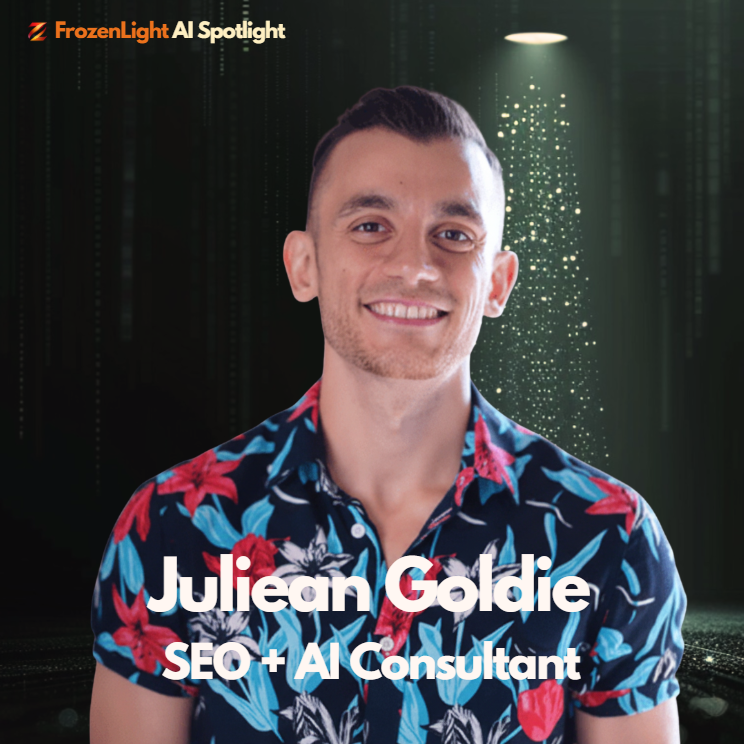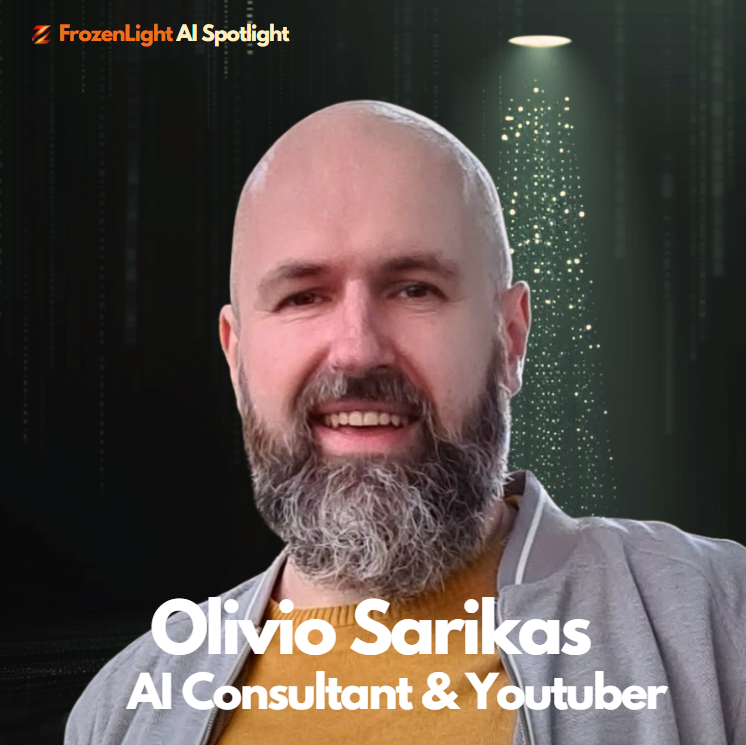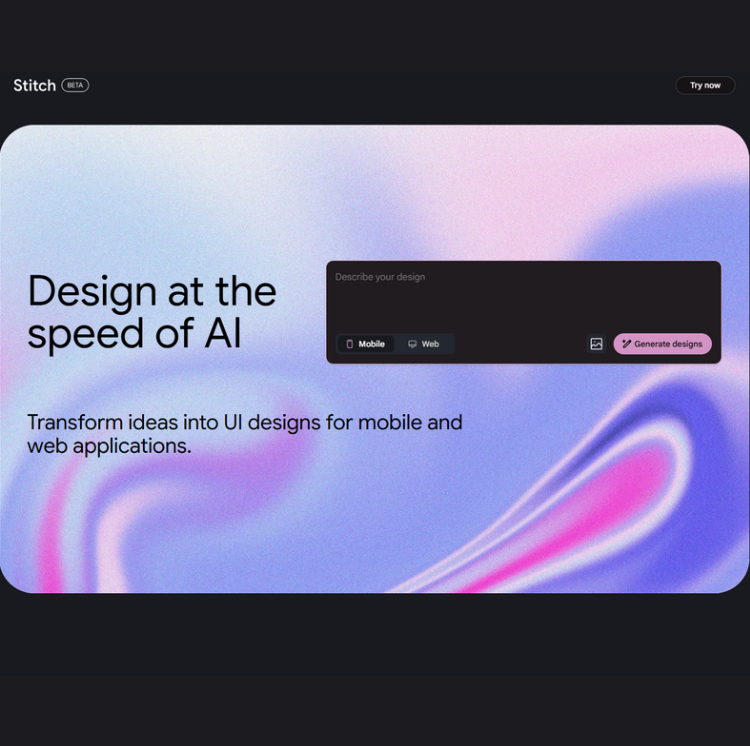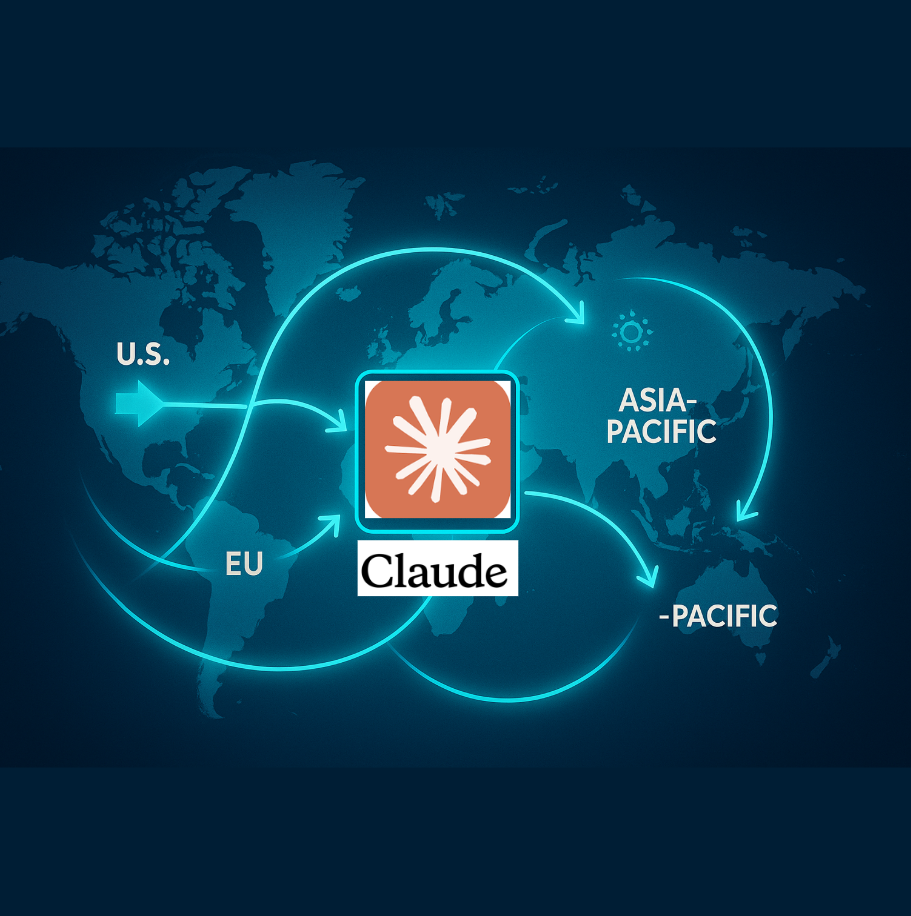
Anthropic is rolling out multi-region data processing for Claude across Europe, Asia, and Australia.
The update will go live on August 19, 2025, and is meant to improve performance for users outside the U.S. without changing data storage rules.
What Anthropic Is Saying
Here’s what Anthropic is changing:
-
If you're using the Claude API in the U.S., your data will be processed and stored only in the U.S.
-
If you're using the Claude API in the EU, your data will be processed and stored only in the EU
-
You can change this manually if you need to process data in a different region
This update only applies to Claude API users - not to users of Claude.ai or Claude through apps like Notion or Slack.
The goal is to give API customers more control over:
-
Where their data is processed
-
Where it’s stored
-
How they meet compliance needs, like GDPR
And to quote Anthropic directly:
“We’re excited to give customers more control and help them meet their compliance requirements more easily.”
What That Means (In Human Words)
This is about where your API data goes - and where it stays.
If you’re sending a prompt to Claude’s API from the U.S., it won’t be sent overseas. The same applies for the EU.
This means:
-
Local processing: Your data is handled closer to home
-
Local storage: It stays there afterward (for a limited time, per Anthropic's retention policy)
-
More control: You now get to decide how strict you want to be with region enforcement
This isn’t about the Claude chat app - it’s purely for companies and developers using Claude’s API in their own apps and platforms.
Let’s Connect the Dots
If you're using Claude as part of your solution through the API, here are a few things you need to know.
What “Processing” Actually Means
When you use Claude through the API, your data goes through two main stages:
Processing – This is where the system analyses the input, generates a response, and handles the request.
Storage – This refers to where your data is saved during or after processing, if applicable.
With the new update, processing will now take place in multiple regions, not just in the United States. That means your API request could be processed in a data centre located in Europe, Asia, or another part of the world - depending on system routing, demand, and performance load.
However, data will still be stored only in the U.S.
So even if your request is handled in another region, the final storage location remains unchanged.
Why This Matters
When you use Claude through an API, the responsibility to understand where your data is processed falls on you. It’s not just a technical detail - it’s a legal and operational one. Depending on the type of data you transfer, your users’ location, and your regulatory environment (like GDPR in the EU), processing outside the U.S. could create compliance risks. If you're building a solution that involves sensitive or governed data, knowing whether Anthropic’s processing model matches your standards isn't optional - it’s part of protecting your users and your business. You need clarity on where the processing happens, so you can make the right call for your region, your data, and your obligations.
GDPR Compliance – What Changes Now?
If you're working with users in the EU or handling data covered by the General Data Protection Regulation (GDPR), this update changes the conversation.
Previously, with processing and storage both based in the U.S., you could assess the legal impact based on a single jurisdiction. Now, with processing potentially happening in non-U.S. data centres, your obligations may shift.
GDPR distinguishes between processing and storage.
Even if the data is ultimately stored in the U.S., the moment it's processed outside of the U.S., local data laws may apply, depending on where and how the processing occurs.
That means:
-
You may need to re-evaluate your data transfer agreements, especially Standard Contractual Clauses (SCCs).
-
You’ll want to assess whether you’re still meeting GDPR’s data minimisation and data localisation requirements.
-
If you’re using Claude’s API as part of a product or service, your users may be affected, and it’s your job to know how.
This is especially relevant if your processing touches sensitive categories of personal data, or if you operate in a regulated industry like health, finance, or education.
Current stage of processing
Let’s review the current state of how Anthropic operates its Claude models.
Anthropic runs Claude primarily through Amazon Web Services (AWS), meaning its infrastructure is based on AWS data centres across the globe.
Here’s what that looks like today:
-
Data storage (where your data is saved) is located in the United States.
-
Data processing (where the model handles your input) may now happen in multiple regions, including the European Union (EU) and Asia-Pacific.
-
This applies only to Claude API users.
-
The reason for the shift: to improve performance and reliability outside the U.S.
-
Unless you opt out, multi-region processing becomes the default on September 19, 2025.
According to Anthropic, while processing may happen globally, data remains stored in the U.S. under their current setup.
Bottom Line
-
Who’s affected: Claude API users only - not those using Claude through Claude.ai or third-party tools like Slack or Notion.
-
What’s changing: Starting September 19, 2025, Anthropic will begin processing data in multiple regions (EU and Asia Pacific), while storage remains in the U.S. by default.
-
Why it matters: If you're using Claude via API in a product or service, it's your responsibility to ensure data processing aligns with your customers’ regional regulations and legal requirements.
-
Can you opt out? Yes. You can request U.S.-only processing before September 19.
-
How to opt out: Email claude-support@anthropic.com with your Claude API org ID and ask for U.S.-only processing.
More info from Anthropic:
https://docs.anthropic.com/claude/docs/data-usage-faqs#multi-region-processing
Prompt It Up
Curious where your data goes? Just ask.
If you're using any LLM - Claude, ChatGPT, Gemini, or others - and you're not sure where your data is being processed, there's one simple way to start:
Ask it directly.
You can run this exact prompt below in any chat interface:
“Where is my data currently being processed and stored when I interact with you through this interface or API?”
Paste it. Send it. See what comes back.
Follow-Up (if needed):
If the model gives you a vague or general answer, follow up with:
“Can you clarify which region(s) my data is stored in and whether it’s retained after processing?”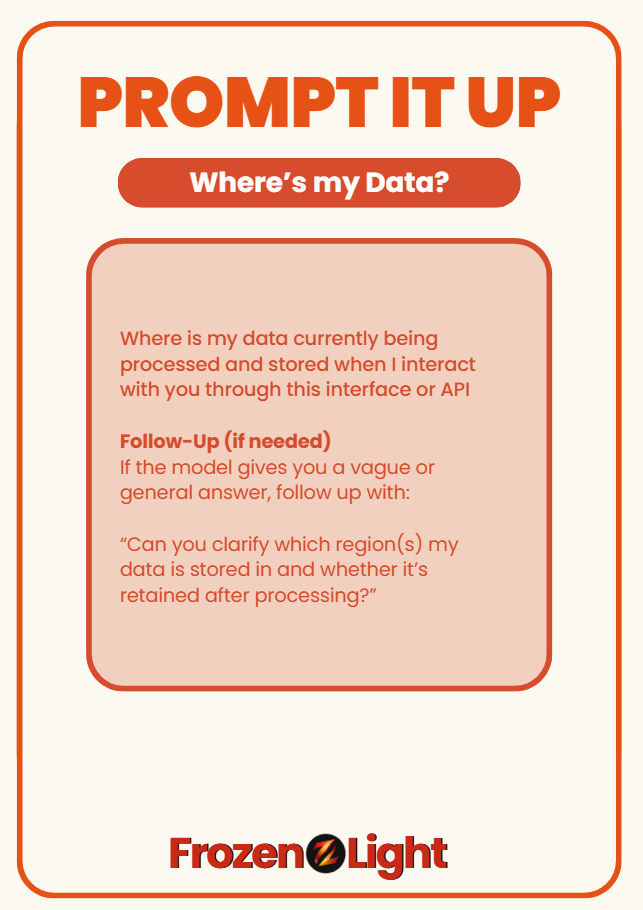
Heads-Up:
Not all LLMs will give a clear answer - and that’s something to pay attention to.
If you don’t get a real location, that doesn’t mean the data isn’t processed. It means you may need to:
-
Check the provider’s documentation
-
Ask your vendor directly
-
Or reconsider how you’re using the tool
Knowing where your data goes isn’t optional - especially if you're serving users with region-based privacy rules like GDPR or CCPA.
Frozen Light Team Perspective
Every LLM vendor that wants to succeed needs others to build around their solution. One-on-one users are nice, but that’s not a strategy. If they want real adoption, they need other companies building with their API.
Anthropic knows that.
They’ve reached 115,000 developers who process 195 million lines of code every week using Claude. And according to The Information and Business Insider, the Claude API now makes up 70% to 75% of Anthropic’s total revenue.
So it’s no surprise they want to improve performance.
We searched online and found multiple reports from developer forums complaining about Claude’s speed and latency when using the API.
Here’s one from Reddit:
“I'm seeing crazy delays with Claude 3 API - sometimes 20+ seconds to get a response.” (Reddit)
Another from Signoz:
“Claude’s latency has been one of the biggest concerns for developer adoption.” (Signoz)
So Anthropic decided to do something about it.
And this is it: multi-region processing.
If you want to keep growing and support real-world performance, latency needs to be up there with accuracy. This move shows that.
From a wider perspective, this also signals a shift in transparency-for one-on-one users too. We’re getting more visibility into how and where our prompts are processed.
From here, transparency is all we can ask for.
Make the right decision for you. What works for your team. What protects your users.
Because privacy will always come at the price of performance-and no one but you can weigh that equation.






